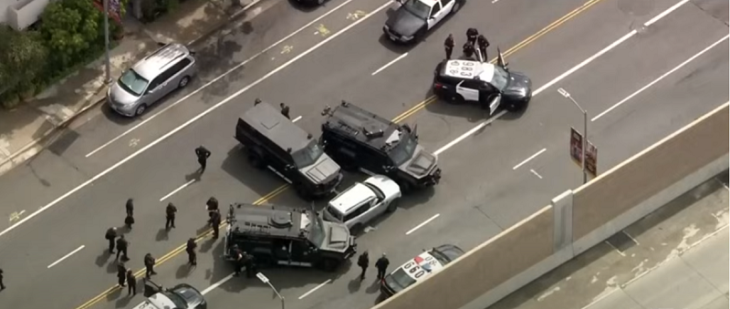Lawyers for Lee Baca are expected to argue Monday that the corruption case against the former Los Angeles County sheriff should be moved to Orange or Riverside counties because prior negative publicity has made it impossible to find an impartial jury in Los Angeles County.
“Based on the constant, inflammatory, and far-reaching media coverage surrounding this matter, a trial within the Central District of California, particularly within Los Angeles County, will violate Mr. Baca’s due process rights,” the defense motion states.
At the hearing, Baca’s attorneys will also recommend that federal prosecutor Brandon Fox be removed from the forthcoming trial because he is a potential defense witness.
Baca faces trial Dec. 6 before U.S. District Judge Percy Anderson for allegedly helping to obstruct a federal probe into misconduct by jail deputies. He is charged with conspiring to obstruct justice, obstructing justice and lying to the federal government, stemming from his alleged response in 2011 to a covert FBI investigation into corruption and brutality by guards at Men’s Central Jail.
Defense attorney Nathan Hochman says the 74-year-old ex-lawman is suffering from Alzheimer’s disease and was impaired by the illness at the time of the charged offenses five years ago.
In August, Anderson ordered a psychological examination to determine if Baca suffers from any mental impairment that would prevent him from understanding the corruption charges against him or assisting in his own defense. That issue is expected to be discussed at a Nov. 21 hearing.
A different judge recently denied Baca’s attempt to disqualify Anderson, who has overseen other high-profile cases involving the FBI investigation into civil rights abuses at county jails.
Defense attorneys had argued that Anderson was already convinced of Baca’s guilt. However, U.S. District Judge Otis Wright denied the motion and responded in an 11-page order that Baca’s concerns were unfounded.
Baca previously backed out of a plea deal on the lying count — which called for him to serve no more than six months in prison — after Anderson rejected the agreement as too lenient. If Baca had not withdrawn from the plea, he could have been handed a sentence of five years behind bars.
He was subsequently indicted on the new charges, and could face up to 20 years in federal prison if convicted of all counts, according to the U.S. Attorney’s Office.
Although Baca admitted in court to lying to investigators, that and other previous admissions cannot be used against him in the current case.
Baca — who ran the nation’s largest sheriff’s department for 16 years — claims he knew nothing of the plan to impede the jails probe and that his former second-in-command, Paul Tanaka, was in charge of the operation. Ten ex- sheriff’s officials — including Tanaka — have been convicted or pleaded guilty in connection with the obstruction case.
Tanaka, who alleges his former boss initiated the plan, was sentenced by Anderson to five years in prison, but is free pending appeal.
Baca retired in 2014 at the height of the federal probe. He had been sheriff since December 1998.
A federal appellate panel upheld the convictions of seven former sheriff’s department officials convicted in the conspiracy.






















